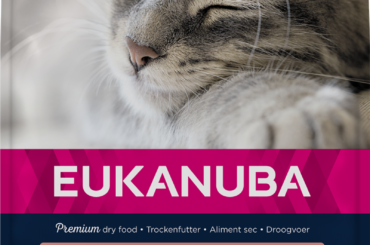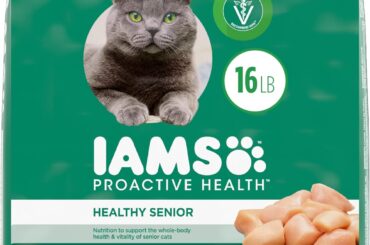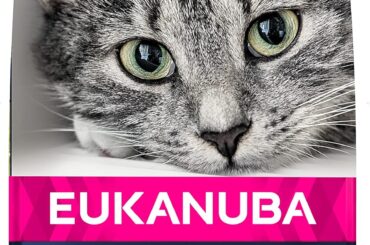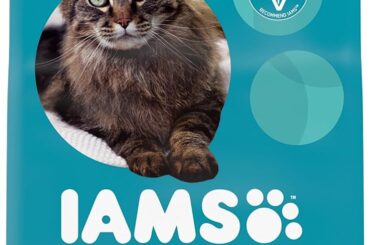Tame your feline’s tummy troubles
More information regarding our evaluation process is available here. Independently researching, assessing, and recommending the top options are our editors. We may receive commissions on purchases made after clicking on one of our chosen links.
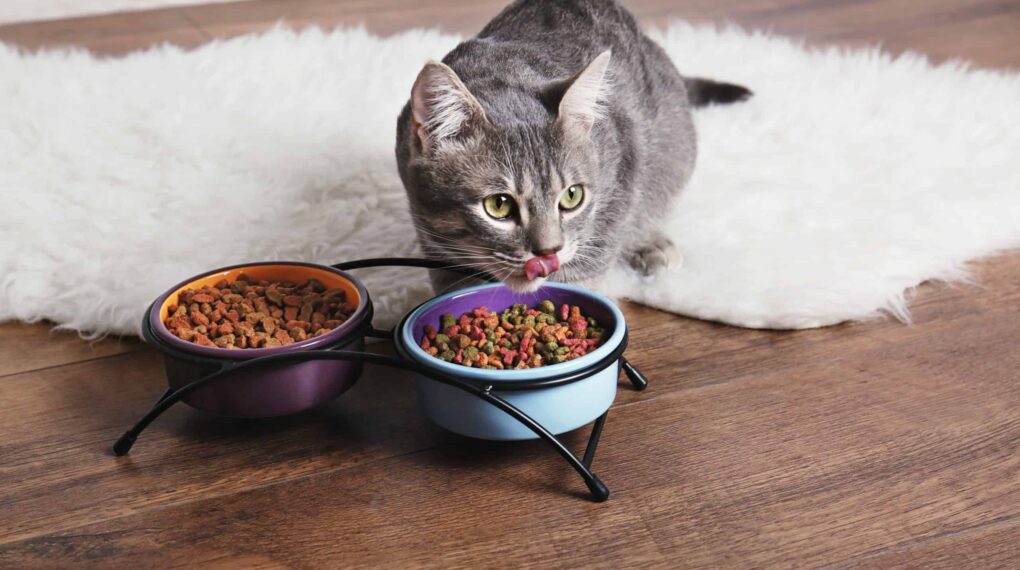
Choosing what to feed your cat can be challenging, but if your cat has food allergies, your options will be more constrained. Hypoallergenic cat meals may be a wise choice for cats who have allergies because they contain ingredients that are less likely to cause an allergic reaction (much like air purifiers, flea treatments, and excellent litter box cleaning are, too!). True food allergies in cats are actually extremely uncommon, but when they do occur, they frequently affect meat, fish, or poultry. As a result, many hypoallergenic food items lack or contain hydrolyzed versions of ingredients that infrequently cause an allergic reaction. They frequently only include one kind of grain or carbohydrate.
Despite the label “hypoallergenic,” no food is completely free from the potential to cause your cat to experience an allergic response. Hypoallergenic cat foods merely lessen the likelihood of an allergic reaction occurring because each cat may have a unique food sensitivity. More complications have resulted from the discovery that some pet meals include substances not disclosed on the label. This makes it more difficult to avoid substances that your cat is allergic to or to initially identify what your cat is sensitive to. Finding a high-quality, trustworthy hypoallergenic cat food is imperative if you and your veterinarian suspect that your cat has food allergies.
Although we conducted market research to create it, the bulk of the foods on this list of the best hypoallergenic cat foods require your veterinarian’s permission.
Best Overall: Hill’s Prescription Diet z/d Skin/Food Sensitivities
Best for Skin Allergies: Hill’s Prescription Diet d/d Skin/Food Sensitivities
Best Dry Food: Royal Canin Veterinary Diet Hydrolyzed Protein HP
RELATED: 9 Premium Dry Cat Foods a Vet Wants Your Cat To Try
Best Natural: Evanger’s Super Premium Rabbit & Quail Dinner
RELATED: The 6 Best Frozen and Freeze-Dried Raw Cat Food of 2022
Best Grain-Free: Blue Buffalo Natural Veterinary Diet Hydrolyzed for Food Intolerance
Best Budget: Natural Balance L.I.D. Limited Ingredient Diets Grain Free Green Pea and Duck Formula
Best for Picky Eaters: Instinct Limited Ingredient Diet Grain Free Recipe
Final Verdict
In response to worries about the quality control of pet foods and the potential for a product to contain an allergen, reliable companies like Hill’s and Royal Canin may provide scientific research, stringent production standards, and satisfaction guarantees on their products. Hydrolyzed proteins and single carbohydrate sources are the safest option for cats who are prone to allergies, thus feeds like Hill’s Prescription Diet z/d (see at Amazon) are often prescribed. Hill’s Prescription Diet d/d (available at Amazon) is another great option for preventing recurrent allergies.
What to Look for in Hypoallergenic Cat Food Ingredients
Hypoallergenic cat feeds may have a single carbohydrate source in addition to a hydrolyzed protein. These foods are also referred to as novel protein or hydrolyzed diets. Contrary to popular opinion, animal grain allergies are extremely uncommon. Animal proteins typically cause allergic reactions in cats, therefore by hydrolyzing them, the body is tricked into thinking they are not allergens.
To prevent the immune system from reacting to a protein, hydrolysis, or breaking the protein down into smaller fragments, is used. The proteins in some hypoallergenic foods may still be derived from beef, fish, chicken, or other sources since they have been hydrolyzed, but they are unlikely to pose any problems.
Other hypoallergenic meals provide a wide variety of animal proteins in addition to beef, fish, and chicken. These less common proteins are often referred to as novel proteins. A hypoallergenic diet might just contain one of these items to further limit the variables even though grains and carbohydrates are less likely to create problems. Cat Age According to the Association of Animal Food Control Officials (AAFCO), kittens and adult cats should be given distinct diets. Therefore, the dietary requirements of these two age groups should be considered while shopping for a hypoallergenic cat food. Even though there are formulations for kittens, most hypoallergenic diets are made to meet the needs of an adult cat.
Senior or geriatric cats should eat hypoallergenic adult cat food, while certain products might be labeled for the elderly. Although certain diets might have extra components to help an older cat, the nutritional needs still follow the AAFCO recommendations for adults.
Size of Cat Obesity is a common problem in housecats. If your cat is overweight and requires hypoallergenic food, the best option for helping it lose weight is to feed it less overall. No matter what kind of food you feed your cat, cutting back on calories will be the key to helping it lose those excess pounds. Increasing the amount of exercise your cat gets will also help with weight loss. As a result, they will feel better because the hypoallergenic diet generally tends to make their skin and coat more comfortable and because their joints are less stressed due to their decreased weight.
Veterinary Consent
The purchase of hypoallergenic cat food requires the approval of a doctor. Because these diets are not meant for cats without established sensitivities, this is the case. Many “prescription” diets are meant to be consumed under a doctor’s supervision because they won’t work as intended if you feed your cat other things or don’t treat its issues with other therapies.
Why Should I Trust the Product Review from the Cat?
For more than ten years, Adrienne Kruzer has written a blog about animal care and veterinary knowledge. She actually holds three state-issued registrations and licenses as a veterinary technician. She also works for a sizable veterinary supplement company and frequently speaks to other veterinarians on canine nutrition.
She takes a personal and professional interest in pet nutrition and enjoys helping pet owners solve problems involving their animals. She has acquired a wealth of knowledge and experience through her formal college education, years of work experience at numerous animal hospitals, and voluntary continuing education courses.









